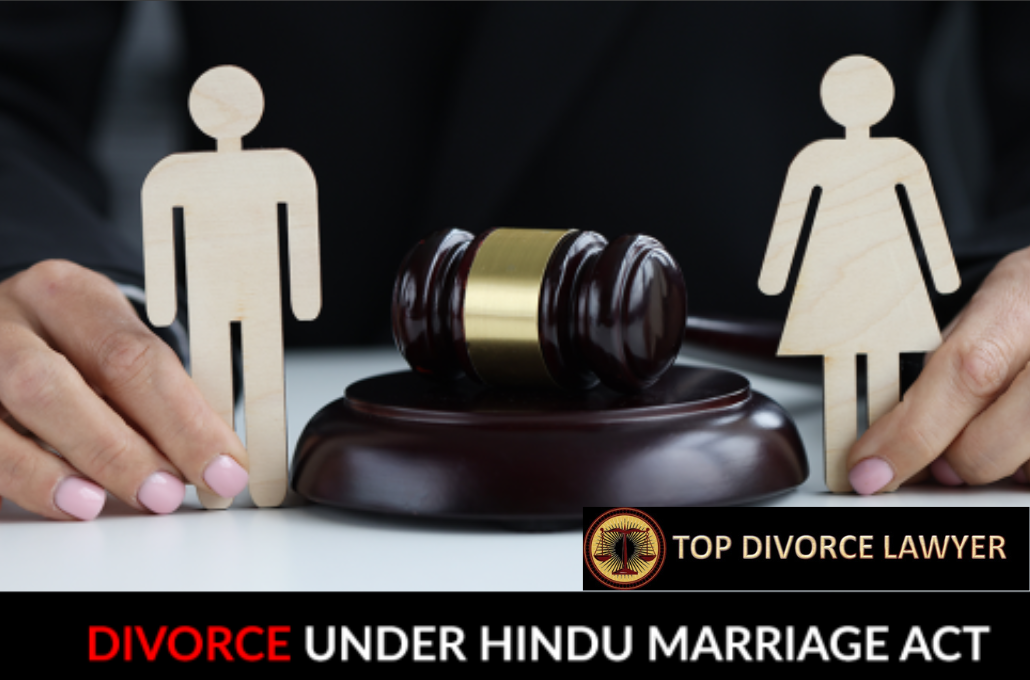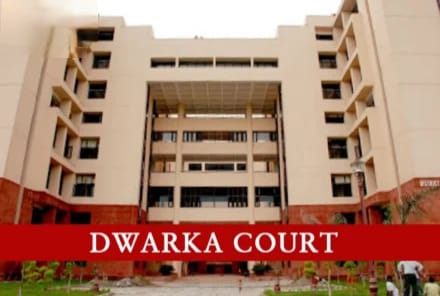DIVORCE UNDER HINDU MARRIAGE ACT 1955
The Hindu Marriage Act, 1955 is the cornerstone of matrimonial law for Hindus in India. It governs the legal aspects of marriage and divorce for individuals who are Hindus by religion, including Buddhists, Jains, and Sikhs. The Act was enacted to reform and codify the Hindu personal laws concerning marriage, including the legal grounds and procedures for separation and divorce. It outlines the legal rights, duties, and responsibilities of spouses, and provides structured remedies when the marriage relationship fails. Under this Act, there are two main types of divorce: mutual consent divorce (Section 13B) and contested divorce (Section 13). Mutual divorce is based on agreement between both spouses, while contested divorce arises when one spouse seeks separation on specific legal grounds such as cruelty, adultery, desertion, or mental disorder. The Act ensures that divorces are granted only when the marriage has broken down irretrievably and continued cohabitation is no longer viable. The purpose of the Act is not just to offer legal relief but to ensure that the process is fair, respectful, and balanced, especially in cases involving children, property, or financial dependency. It also provides for issues such as alimony, child custody, maintenance, and property division, ensuring the protection of vulnerable spouses. At Top Divorce Lawyer, we specialize in handling divorce cases under the Hindu Marriage Act with precision, empathy, and legal expertise. Our team understands that every marriage and every separation is unique, and we provide customized legal solutions accordingly. Whether you are considering a mutual divorce or facing a contested case, we are here to guide you with clear legal advice, proper documentation, and court representation, ensuring your rights are fully protected under the law.

Why Choose Us
- Experienced divorce lawyers ensuring strong legal strategy, accurate filings, and effective courtroom representation every step.
- Personalized legal advice tailored to your unique contested divorce situation, goals, and family circumstances.
- Transparent communication and honest case evaluation, so you always know where your case stands.
- Fast response to legal issues, court dates, and client concerns—no unnecessary delays in action.
- Compassionate approach to sensitive matters like child custody, alimony, and emotional family disputes.
- Proven track record in handling complex contested divorce cases across multiple family courts in India.
Who Can File for Divorce Under the Hindu Marriage Act
The Hindu Marriage Act, 1955 is a comprehensive legislation that governs the institution of marriage and its dissolution for individuals who identify as Hindus, Buddhists, Jains, or Sikhs. It applies not only to those born into these religions but also to those who have converted to any of these faiths. Therefore, if you are practicing any of these religions, or have converted and your marriage was solemnized according to Hindu rituals or registered under Hindu personal laws, you are entitled to seek divorce under this Act. Under this Act, either spouse—husband or wife—has the legal right to file for divorce. The law does not favor one gender over the other; both parties are considered equal in the eyes of the court. The only requirement is that the petitioner must establish valid legal grounds for divorce as specified under Section 13 of the Act. These grounds may include cruelty (mental or physical), adultery, desertion, conversion to another religion, mental disorder, venereal disease, renunciation of worldly life, or the spouse being presumed dead for over seven years. Additionally, couples may also opt for mutual consent divorce under Section 13B, provided they have been living separately for at least one year and both agree that the marriage has broken down beyond reconciliation. Mutual divorce requires the voluntary and informed consent of both parties and is generally faster and less confrontational than a contested divorce. It is important to note that the Hindu Marriage Act applies only if the marriage was solemnized under Hindu rites or is legally recognized as a Hindu marriage. For inter-religious marriages or marriages under civil law, other legal provisions such as the Special Marriage Act, 1954 may apply. At Top Divorce Lawyer, we assist individuals from all backgrounds who qualify under the Hindu Marriage Act to understand their rights and take informed steps. Whether you are initiating divorce or responding to a petition, our expert legal team ensures that your case is handled with the professionalism, care, and legal accuracy it deserves.
Legal Grounds for Divorce Under Section 13
Section 13 of the Hindu Marriage Act, 1955 provides a detailed list of legal grounds on which a husband or wife can file for divorce. These grounds are designed to protect individuals from continued suffering in a marriage that has broken down and to provide a fair, lawful exit when reconciliation is no longer possible. Each ground must be proven with adequate evidence in court, and the burden of proof lies with the petitioner. One of the most commonly cited grounds is cruelty—this can be physical or mental. Repeated insults, abuse, harassment, or actions that endanger physical or emotional well-being can be considered cruelty. If cruelty makes it unreasonable for a spouse to live with the other, it becomes a valid basis for divorce. Adultery is another ground, where one spouse voluntarily engages in sexual relations outside the marriage. While once difficult to prove, the law now allows circumstantial and electronic evidence to support claims of adultery. Desertion occurs when one spouse leaves the other without any reasonable cause for a continuous period of at least two years. The desertion must be intentional, and the petitioner must prove that it was without consent or justification. Mental disorder or illness severe enough to make marital life unsafe or unmanageable is also a ground for divorce. This includes incurable conditions such as schizophrenia or serious psychological disorders, but must be supported by medical records and expert testimony. Other grounds include conversion to another religion, renunciation of the world (becoming a sanyasi), and presumption of death—if a spouse has not been heard from in over seven years, the other party may file for divorce. At Top Divorce Lawyer, we help you carefully evaluate your circumstances and determine the most appropriate legal ground based on facts and available evidence. We assist in drafting the petition, gathering necessary proof, and presenting a strong legal case. Our goal is to ensure that your petition is compliant with the law and has the highest chance of being accepted by the court, allowing you to move forward with confidence and clarity.
Mutual Consent Divorce Under Section 13B
Section 13B of the Hindu Marriage Act, 1955 provides a legal mechanism for couples who wish to dissolve their marriage by mutual consent. This provision acknowledges that sometimes, despite efforts, a marriage may become unworkable, and both spouses may mutually agree that it is best to part ways peacefully. A mutual consent divorce is widely regarded as the simplest, fastest, and least emotionally taxing way to legally end a marriage. To file under Section 13B, both spouses must have been living separately for a minimum of one year. This doesn’t necessarily mean living in different houses, but rather that the couple has not been living as husband and wife. Additionally, both parties must jointly state before the court that their marriage has broken down irretrievably, and that they no longer wish to live together. There must be free and voluntary consent from both parties—neither should be under pressure, coercion, or undue influence. The mutual consent divorce process involves two motions. The first motion is the joint filing of the petition, after which the court may grant a six-month cooling-off period to allow the couple time for reconciliation. However, in certain cases where reconciliation is clearly not possible, this waiting period may be waived by the court. After the cooling-off period, the second motion is filed, during which the court confirms that both parties still consent to the divorce. If everything is in order, the court grants the final decree of divorce, legally dissolving the marriage. One of the biggest advantages of mutual consent divorce is that it allows couples to decide terms among themselves, including child custody, alimony, maintenance, and property division. This approach gives more control to the couple and reduces courtroom conflict. At Top Divorce Lawyer, we specialize in handling mutual divorce cases with compassion, professionalism, and efficiency. We help clients draft clear and fair settlement terms, handle all legal paperwork, and represent them during court hearings. Our goal is to make the process as smooth, respectful, and time-efficient as possible so that both parties can move forward with dignity and peace of mind.

Home Page

Contact Us
Contested Divorce: When One Spouse Disagrees
A contested divorce arises when one spouse does not agree to the divorce or there are serious disagreements regarding key issues such as child custody, alimony, maintenance, or property division. In such cases, the divorce cannot proceed on mutual consent and must be resolved through legal proceedings in family court. Contested divorces are often more complex, emotionally intense, and time-consuming, but they become necessary when cooperation between the spouses breaks down. Under Section 13 of the Hindu Marriage Act, 1955, a contested divorce can be filed on specific legal grounds such as cruelty, adultery, desertion for at least two years, mental illness, conversion to another religion, or other valid reasons recognized by law. The spouse filing for divorce must clearly state the ground and provide supporting evidence to convince the court that the marriage has irretrievably broken down and that it is no longer possible to live together. The process of contested divorce typically begins with the filing of a petition in the appropriate family court. The court then issues a notice to the other party, who is required to file a response. This is followed by several stages including evidence submission, witness examination, cross-examination, and legal arguments. The court considers all presented facts before delivering a judgment. The process may take months or even years, depending on the complexity of the issues and the level of conflict between the parties. Contested divorces often involve significant stress due to the emotional and legal challenges involved. False allegations, delays, and aggressive tactics are not uncommon, which is why having experienced and strategic legal representation is crucial. At Top Divorce Lawyer, we understand how delicate and high-stakes these cases can be. Our team offers personalized legal strategy, thorough preparation of documents and evidence, and strong representation in court. We also assist in handling sensitive issues like child custody, visitation rights, and spousal support, always aiming to protect your rights and achieve a fair outcome. With our expert guidance, you can approach a contested divorce with confidence, knowing your case is in capable hands.
Relief Available Under the Hindu Marriage Act
The Hindu Marriage Act, 1955 is not just a legal framework for divorce—it also provides various forms of legal relief to protect the rights and interests of both spouses, especially during and after the dissolution of a marriage. Whether you're initiating divorce proceedings or responding to them, it’s important to understand the full scope of relief available under the law. These remedies are designed to ensure fairness, justice, and dignity throughout the process. One of the most significant forms of relief is the decree of divorce, which legally terminates the marital relationship. Once granted, both individuals are free to remarry. However, not every marital issue requires immediate divorce. The Act also provides for judicial separation, where the court allows spouses to live apart legally without ending the marriage. This can be an option for those who want space or time to resolve conflicts without dissolving the marriage entirely. Another crucial area of relief is maintenance or alimony. The Act allows the wife or husband (depending on circumstances) to claim financial support either during the case or after divorce. Maintenance ensures that a financially dependent spouse is not left without resources. Courts consider factors such as the income, assets, age, health, and lifestyle of both parties before deciding the amount. Child custody and guardianship are also covered under this Act. The welfare of the child is the court’s paramount concern, and custody may be awarded to either parent or shared, based on what best serves the child's emotional, educational, and physical needs. The Act also empowers the court to issue injunctions or restraining orders, particularly in cases involving domestic violence, harassment, or threats. These legal protections help ensure the safety and security of the affected spouse and children. At Top Divorce Lawyer, we ensure you are aware of every legal remedy available to you. Whether it’s seeking financial security, custody of your child, or protection from harm, our legal team advocates firmly for your rights. We assess your case thoroughly and file for the appropriate reliefs to give you the legal, emotional, and practical support needed to move forward with confidence.
Why Legal Guidance Is Crucial in Hindu Divorce Cases
Navigating a divorce under the Hindu Marriage Act, 1955 is not only emotionally challenging but also legally complex. Whether it is a mutual consent divorce or a contested divorce, the process involves several legal formalities, extensive documentation, evidence gathering, and court appearances. Without proper legal guidance, even the smallest mistake—like an incorrectly drafted petition, missing documents, or procedural delays—can result in setbacks, complications, or dismissal of the case altogether. For many individuals, the divorce process becomes overwhelming when emotions and legal responsibilities collide. The stakes are high—issues such as child custody, spousal maintenance, division of property, and visitation rights must be carefully addressed in line with legal provisions. Additionally, court proceedings require specific language, format, and arguments that only a skilled lawyer can effectively present. Understanding your legal rights and obligations under the Hindu Marriage Act requires more than general knowledge—it requires expertise in family law and courtroom experience. That is why professional legal support is absolutely essential when dealing with divorce under this Act. A qualified divorce lawyer not only explains your legal position clearly but also builds a strong case strategy, gathers supporting evidence, and represents your interests assertively in court. In contested cases, the opposing party may make false claims or try to manipulate the legal system—your lawyer will ensure your rights are not compromised and that you are fully defended at every stage. At Top Divorce Lawyer, we bring you a team of experienced legal professionals who specialize in Hindu divorce cases. We provide end-to-end support, including document drafting, court representation, legal notices, settlement negotiations, and filing for relief such as custody or maintenance. We keep communication clear and transparent so you are always informed and confident about your next steps. Our legal experts handle each case with precision, compassion, and discretion, ensuring that your journey through the legal system is smooth, respectful, and efficient. Whether you’re initiating divorce or defending against a petition, we are committed to protecting your rights and helping you achieve the best possible outcome—without unnecessary stress or delay.








